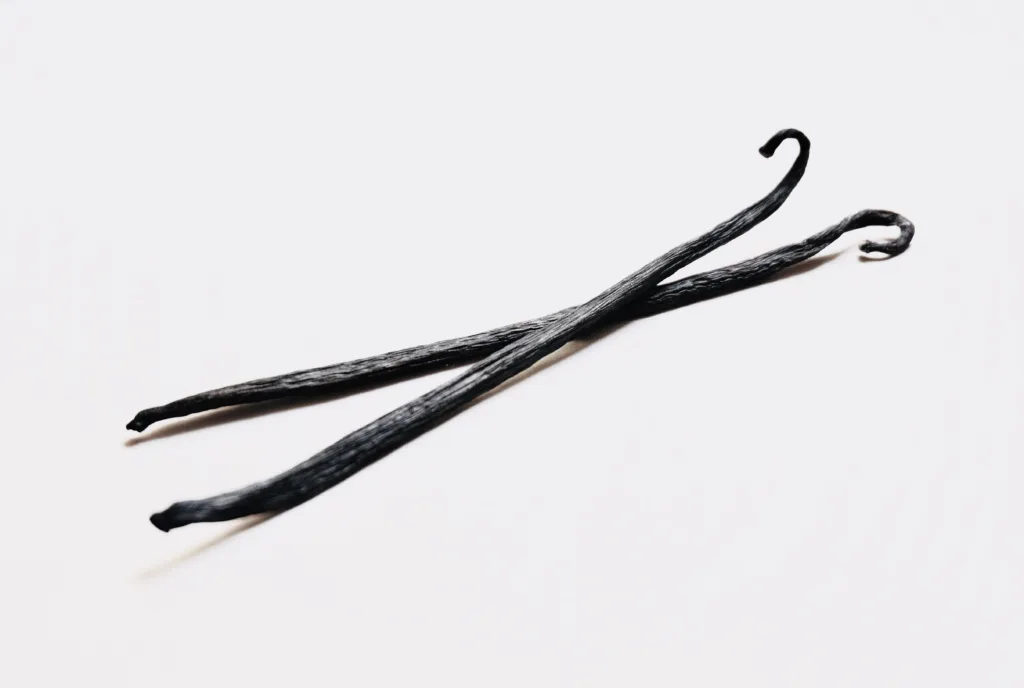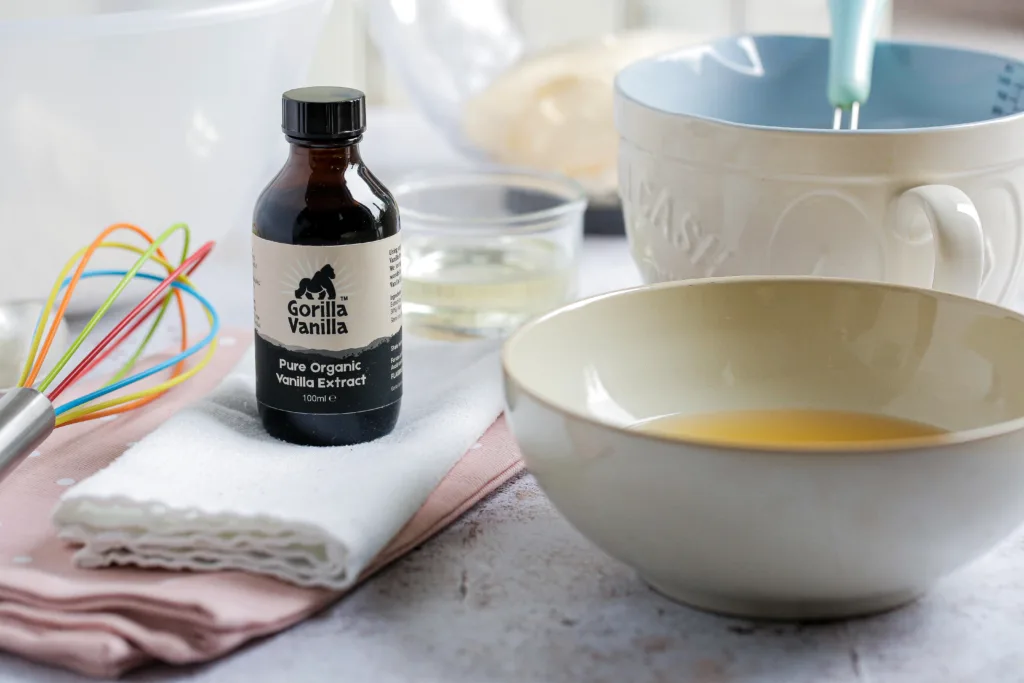Vanilla extract is a popular ingredient in many recipes, from baked goods to beverages. But for tose following a vegan diet, it’s important to know if vanilla extract is a vegan-friendly ingredient.
The good news is that vanilla extract is indeed vegan. This flavorful ingredient is typically made by steeping vanilla beans in a mixture of ethyl alcohol and water. There are two main types of vanilla extract available on the market: natural vanilla extract and artificial vanilla extract.
Natural vanilla extract is made from real vanilla beans and is the more expensive option. It contains a minimum of 35 percent alcohol and at least 100 grams of vanilla beans per liter. The vanilla beans used to make natural vanilla extract are grown in various parts of the world, including Madagascar, Tahiti, and Mexico.
Artificial vanilla extract, on the other hand, is made using synthetic ingredients and is a cheaper alternative to natural vanilla extract. It’s also known as “vanilla flavoring” or “imitation vanilla.” While it may not have the same depth of flavor as natural vanilla extract, it’s still a good option for those on a budget or who want to avoid alcohol.
Regardless of which type of vanilla extract you choose, both are completely vegan-friendly. Neither natural nor artificial vanilla extract contains any animal products or byproducts. This means that vegans can enjoy the delicious flavor of vanilla extract without any ethical concerns.
Vanilla extract is a vegan-friendly ingredient that can be used in a wide variety of recipes. Whether you prefer natural or artificial vanilla extract, both are great choices for anyone on a plant-based diet. So go ahead and add a splash of vanilla extract to your next recipe, knowing that it’s a cruelty-free and delicious ingredient.
Can Vanilla Be Vegan?
Vanilla can be vegan. Vanilla is a flavoring commonly used in many foods and beverages, and it can be made from either natural or artificial ingredients. Both types of vanilla extract are typically vegan as they do not contain any animal-derived ingredients. Natural vanilla extract is made from vanilla beans, which are grown on a type of orchid. The beans are harvested, cured, and then extracted using alcohol. Artificial vanilla extract, also kown as vanillin, is typically made from a combination of chemicals, such as lignin, which is derived from wood pulp, and guaiacol, which is derived from clove oil or creosote. Neither of these ingredients is derived from animal products, which means that vanilla extract, whether natural or artificial, is suitable for vegans. It’s worth noting that some vanilla flavorings may contain other additives that are derived from animal products, so it’s always a good idea to check the label if you’re unsure.

Is McCormick Pure Vanilla Extract Vegan?
McCormick All Natural Pure Vanilla Extract is vegan. It is made without the use of any animal products or by-products, and does not contain any artificial flavors or colors. Additionally, it is Non-GMO and Kosher certified. This makes it a great option for anyone following a vegan diet or lifestyle. McCormick is a trusted brand known for its high-quality ingredients, and their pure vanilla extract is no exception. So, rest assured that you can enjoy the delicious flavor of pure vanilla in your recipes, without compromising your vegan principles.
What Is Vanilla Extract Made Of?
Vanilla extract is made by soaking vanilla beans in a mixture of ethyl alcohol and water. The vanilla beans used for making extract are harvested from the vanilla orchid plant, which is native to Mexico but is now grown in other parts of the world. The beans are long and thin, and they contain tiny black seeds that are responsible for the distinctive flavor and aroma of vanilla.
To make vanilla extract, the beans are first washed and dried, and then they are cut into small pieces. These pieces are then steeped in a solution of alcohol and water for several weeks to several months, depending on the desired strength of the extract. The alcohol in the mixture acts as a solvent, extracting the flavor and aroma compounds from the vanilla beans.
After the steeping process is complete, the extract is filtered to remove any solids or impurities, resulting in a clear, amber-colored liquid. To be classified as pure vanilla extract, the final product must contain a minimum of 35% alcohol and at least 100 grams of vanilla beans per liter.
Vanilla extract is made from vanilla beans that are steeped in a mixture of alcohol and water, resulting in a fragrant and flavorful liquid that is used in a variety of culinary applications.
Is Natural Vanilla Flavouring Vegan?
Natural vanilla flavouring is vegan. It is derived from the vanilla bean, which is a plant-based ingredient. Natural vanilla flavouring is usually made by soaking vanilla beans in alcohol to extract the flavour. This process is vegan-friendly and does not involve any animal products or by-products. Therefore, those who follow a vegan diet can consume natural vanilla flavouring without any concerns. It is a great choice for adding flavour to vegan desserts, beverages, and other dishes.

Conclusion
Vanilla extract is a vegan-friendly flavoring product that can be used in a wide variety of recipes. Whether you prefer natural or artificial vanilla extract, both types are made without any animal products and are safe for vegans to consume. Vanilla extract is made by steeping vanilla beans in a mixture of ethyl alcohol and water, and to be considered a pure vanilla extract, it must contain at last 35 percent alcohol and 100 grams of vanilla beans per liter. Although natural vanilla extract may be more expensive, it can provide a more delicate and authentic flavor to your dishes. So, if you’re looking for a vegan-friendly way to add a sweet and fragrant touch to your cooking, vanilla extract is a great choice to consider.
